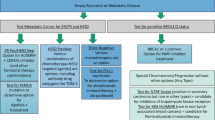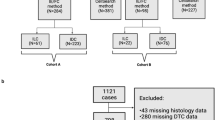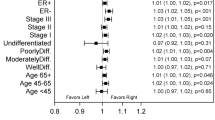Abstract
In this single-centre study of 881 patients, S-phase fraction (SPF) was shown to be a significant prognostic marker in terms of overall survival (OS), relapse-free survival (RFS) and survival after relapse (SAR). Further, SPF had independent prognostic significance when considering a range of other clinicopathological variables, namely tumour grade and stage, nodal status, patient age, tumour size, menstrual status and treatment details. For OS and RFS, SPF was the second strongest predictor of the clinical course of the disease after nodal status, and for SAR it was the strongest prognostic marker. SPF correlated positively with histological grade but was the stronger predictor of survival. The distribution of SPF values was markedly different for the two ploidy classes of tumour, with DNA aneuploid tumours having a significantly higher average SPF. However, SPF retained its independent prognostic ability when DNA diploid and aneuploid tumours were analysed separately, DNA ploidy itself also proved to be an independent prognostic marker but the survival difference between the two ploidy classes was much less than that seen for different levels of SPF. Tumours with several DNA aneuploid populations (multiploid tumours) tended to have a worse prognosis than other aneuploid tumours but this trend did not reach statistical significance. In this and other studies from this centre, SPF has proved to be a robust predictor of clinical outcome in carcinoma of the breast.
This is a preview of subscription content, access via your institution
Access options
Subscribe to this journal
Receive 24 print issues and online access
$259.00 per year
only $10.79 per issue
Buy this article
- Purchase on Springer Link
- Instant access to full article PDF
Prices may be subject to local taxes which are calculated during checkout
Similar content being viewed by others
Author information
Authors and Affiliations
Rights and permissions
About this article
Cite this article
Camplejohn, R., Ash, C., Gillett, C. et al. The prognostic significance of DNA flow cytometry in breast cancer: results from 881 patients treated in a single centre. Br J Cancer 71, 140–145 (1995). https://doi.org/10.1038/bjc.1995.29
Issue Date:
DOI: https://doi.org/10.1038/bjc.1995.29
This article is cited by
-
The S-phase fraction of the aneuploid cell subpopulation is the biologically relevant one in aneuploid breast cancers
Breast Cancer Research and Treatment (2005)
-
Combined flow cytometry determination of S-phase fraction and DNA ploidy is an independent prognostic factor in node-negative invasive breast carcinoma: analysis of a series of 271 patients with stage I and II breast cancer
Breast Cancer Research and Treatment (2005)
-
DNA ploidy analyses in 218 consecutive Pakistani breast cancer patients: Does it add anything?
Pathology & Oncology Research (2001)
-
Comparison of the Ki-67 score and S-phase fraction as prognostic variables in soft-tissue sarcoma
British Journal of Cancer (1999)
-
Molecular pathology of Breast Cancer: Prognostic and predictive markers in this century and the next
Breast Cancer (1999)



